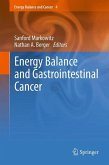The obesity pandemic continues to increase on a world-wide basis with over 70% of the United States population being either overweight or obese. Hematologic malignancies have recently been identified among the obesity associated malignancies spanning the lifespan from childhood to the elderly and include leukemia, myeloma, lymphoma and others. In addition to the etiologic association between obesity and hematologic malignancies, the presence of obesity has profound effects on therapy by impacting pharmacokinetics of chemotherapeutic agents, dose, adipocyte metabolism and drug distribution. These may be particularly important in hematopoietic stem cell transplantation. Another important aspect of the association of obesity with hematologic malignancies is the increased incidence of obesity in children who successfully complete therapy for acute lymphoblastic leukemia. This and other observations indicate important relations between the hematopoietic systems and fat metabolism. This volume on Energy Balance in Hematologic Malignancies will provide an important volume in this series and a basis for better understanding etiology, mechanisms, therapeutics implications and experimental approaches. This volume of energy balance and cancer will focus on the relation of obesity to hematologic malignancies, the epidemiology, potential mechanisms, and thereapeutic considerations including effects on pharmacologic and physical approaches as well as the delayed effects of therapy on energy balance.
From the reviews: "This book addresses a serious public health issue -- obesity and how it affects the incidence, treatment, and outcomes in patients with hematologic malignancies. ... It targets researchers in the obesity-cancer field, clinicians, pharmacists, and ancillary caregivers. ... a good resource for select patient populations. ... The book has enough diagrams and tables to give a visual depiction of what the text is explaining. ... I am not aware of any other book that addresses the issue of obesity and hematological malignancies in this detail." (Kehinde Adekola, Doody's Review Service, July, 2012)








